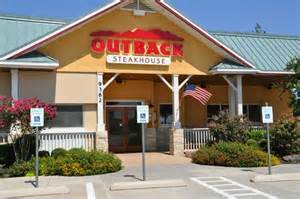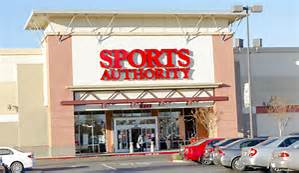

|
207 Abbey Lane Lansdale, Pennsylvania 19446 215-855-1800 |
300 E. Raleigh Avenue Diamond Beach, New Jersey 08260 215-990-6663 |
Specializing in Real Estate Appraisal and Property Tax Consulting
A Professional Courtesy of:
|

Specializing in Real Estate Appraisal and Property Tax Consulting |
| SUMMER 2016 |
 |
|
In This Issue:
|
|
Impact of Brexit on CRE On June 23, 2016, the citizens of the United Kingdom voted to leave the European Union, known as Brexit, creating uncertainty that induced a sharp decline in global equity markets. According to research by Marcus & Millichap, the British currency fell dramatically, boosting the value of the U.S. dollar, and the quick re-deployment of capital to safer assets pushed U.S. Treasury rates to their lowest levels since 2012. Despite the short-term volatility resulting from this unanticipated outcome of the British vote, the risk to the U.S. economy should be limited.According to the research brief, the U.K. receives only 3.9% of U.S. exports, so even a modest British recession resulting from the departure would minimally impact the U.S. economy. The broader EU takes in about 15% of U.S. exports, but the U.K. exit is unlikely to spark a substantive economic decline across the remaining 27 members of the union. Another potential hazard stems from the concentration of banking services in London with deep ties across the globe. However, central banks worldwide stepped in to backstop liquidity and reassure markets that banking systems will remain operational. In addition, U.S. banks recently passed their stress tests, providing assurances that they have sufficient liquidity to navigate choppier financial waters.  Following its meeting earlier this month, the Fed cited risks associated with the Brexit vote as a contributing factor in its decision not to raise rates at that time. With the outcome of the British vote decided, the potential for a July increase has been virtually erased, and the probability of September and December rate hikes has fallen significantly. In conjunction with the decline in Treasury rates and reassurances of liquidity, commercial real estate investors could benefit from low lending costs. Although lender spreads generally widened in the aftermath of the Brexit vote, interest rates remain highly favorable for investors.
Following its meeting earlier this month, the Fed cited risks associated with the Brexit vote as a contributing factor in its decision not to raise rates at that time. With the outcome of the British vote decided, the potential for a July increase has been virtually erased, and the probability of September and December rate hikes has fallen significantly. In conjunction with the decline in Treasury rates and reassurances of liquidity, commercial real estate investors could benefit from low lending costs. Although lender spreads generally widened in the aftermath of the Brexit vote, interest rates remain highly favorable for investors.According to Marcus & Millichap, the greatest downside risk remains that falling equity markets could create sufficient fear that investors begin a sell-off, similar to what happened at the beginning of the year. These contagion-related, fear-induced risks could weaken business and consumer confidence, slowing the economy and creating downside potential for the economy. The Brexit will likely have little impact on short-term commercial real estate performance as few demand drivers will be influenced. Apartment demand in the second quarter appears quite robust, with positive demographics and long-run hiring momentum supporting the sector. The outlook for office and retail properties is more mixed, depending on how consumers and businesses perceive the news. Should confidence falter, demand for these property types could soften modestly, but restrained construction will remain an important factor supporting the performance of these asset types. Industrial properties are positioned to benefit from the Brexit as the strengthening dollar could lift imports of foreign goods, though potential downsides exist for U.S. manufacturers that export. While the Brexit decision has elevated short-term uncertainty that will likely translate into greater investor caution, it could also potentially boost commercial real estate sales in the mid-term to long-term period. According to Marcus & Millichap, downward pressure on interest rates will benefit investors, while the appeal of hard assets with favorable yields could draw additional capital to the sector. The depth and duration of volatility surrounding the event will significantly influence the ramifications for investment real estate. However, barring an unanticipated major economic setback or consequences stemming from the Brexit, the prospects of significant downside risk are limited. |
Retailers Considering Sale-Leaseback Deals According to the Co-Star Group, despite a drop in the number of retail property sale-leasebacks in the first quarter of this year, there appears to be a substantial pipeline of deals building up as more retailers explore the option. Among those actively looking to sell off corporate-owned stores is Mattress Firm Holding Corp., which has begun selling 1,050 Sleepy's stores it acquired following a merger that closed in February. Fast-food chain Wendy's has identified about 315 owned eateries it plans to dispose of by the end of the year. Bloomin' Brands Inc., owners of Outback Steakhouse, agreed to a sale leaseback of 41 eateries and has another 215 restaurants it hopes to sell by early next year. The Bon-Ton Stores Inc. department stores is also exploring sale-leaseback opportunities as a way to pay down pending debt maturities.The pipeline of retail property available for sale is such that Realty Income Corp. (NYSE: O) recently raised its guidance on the amount of acquisitions it expects to make this year. Realty Income Corp. has been one of the largest buyers of such properties over the last two years. The company raised its 2016 acquisitions guidance to $900 million from an initial estimate of $750 million. During the first quarter, the company completed $353 million in acquisitions and continues to see a strong flow of opportunities that meet their investment parameters. The company remains disciplined in their investment strategy acquiring just 6% of the deals evaluated, which is consistent with their average since 2010. The $900 million estimate does not take into account any as-yet unidentified large-scale transactions that may present themselves. Second quarter sale/leaseback activity among retailers has already kicked off following a couple of large portfolio sales from Bob Evans Farms Inc. and Bloomin' Brands. Bob Evans sold and leased back 143 restaurants to subsidiaries of National Retail Properties Inc. (NYSE: NNN) and Mesirow Realty Sale-Leaseback Inc. National Retail Properties paid $160.8 million for a portfolio of 117 Bob Evans Restaurant properties; and Mesirow paid $36.4 million for a portfolio of 26 eateries, netting a gain of $164 million on the sale which it plans to use to pay down debt. As part of the transactions, Bob Evans Restaurants agreed to lease the locations for an initial term of 20 years, with five renewal options of five years each. The average price per property was around $1.35 million ($270/SF) and average purchase was for a 5,000¬square-foot building on about an acre of land. Rent is only about $75,000 ($15/SF) per property on average which is considered very safe, for both the tenant and the landlord.  Subsequent to the end of the first quarter of 2016, Tampa-based Bloomin' Brands also sold and leased back 41 of its stores, primarily Outback Steakhouses, to Realty Income Corp. for $141.4 million or about $3.45 million per eatery. It used a portion of the proceeds to pay down $87.6 million in debt. Given the attractive real estate environment and the high level demand for these properties, Bloomin' Brands intends to pursue additional sale-leaseback deals through a combination of individual as well as larger institutional transactions.
Subsequent to the end of the first quarter of 2016, Tampa-based Bloomin' Brands also sold and leased back 41 of its stores, primarily Outback Steakhouses, to Realty Income Corp. for $141.4 million or about $3.45 million per eatery. It used a portion of the proceeds to pay down $87.6 million in debt. Given the attractive real estate environment and the high level demand for these properties, Bloomin' Brands intends to pursue additional sale-leaseback deals through a combination of individual as well as larger institutional transactions.Bloomin' Brands still owns more than 600 Outback properties and 205 Bonefish Grill restaurants. Given the current pipeline, the firm expects to substantially complete the sale of the available portfolio by early 2017. The transaction is expected to unlock significant value. National Retail Properties said it looked at the recent Bloomin' Brands portfolio, but felt the cost per restaurant was a bit outside its range. However, the REIT said it would take a look at smaller portfolio transactions or one-off deals from Bloomin' Brands. |
Sports Authority Closing All Stores Sports Authority, the once-mighty sporting goods chain that filed for bankruptcy protection in March, is closing all its 450 remaining stores, where going-out-of-business sales began before Memorial Day. A group of liquidators that offered the winning bid for the debt-ridden company's assets at bankruptcy auction will sell off remaining merchandise in going-out-of-business sales at stores not already in the process of closing, according to a filing in bankruptcy court in Delaware.The move comes after Englewood, CO-based Sports Authority could not reach agreement with lenders and creditors on a reorganization plan, and then failed to lure a bidder willing to buy most or all of its stores and operate them. Sports Authority previously said it would close 140 of its 450 stores, including the flagship Sports Castle in Denver, where a liquidation sale has been underway for weeks. But now the company says that all stores will be closed. Going-out-of¬business sales at stores where selloffs are not already underway will start about May 25 and end about Aug. 31, the filing said. At one time, Sports Authority was the nation's largest sporting goods chain, but increasingly it has faced heightened competition from mainstream retailers like Dick's Sporting Goods Inc. (NYSE: DKS) as well as specialty and online merchants. The company confirmed in late January that it had laid off about 100 workers at its corporate office. And in February it said it would close a distribution center in Denver, sacrificing 72 jobs.  Sports Authority filed for Chapter 11 bankruptcy protection in early March amid debts topping $1 billion. In late April it gave up on trying to reorganize and instead focused on selling off most or all of the business, possibly to one or more rival chains. But no bidders emerged who were willing to take over the business. The liquidation team that won Monday's auction consists of Tiger Capital Group, Hilco Global and Gordon Brothers. Tiger and Gordon Brothers already have been involved in liquidating merchandise at the 140 Sports Authority stores previously marked for closure.
Sports Authority filed for Chapter 11 bankruptcy protection in early March amid debts topping $1 billion. In late April it gave up on trying to reorganize and instead focused on selling off most or all of the business, possibly to one or more rival chains. But no bidders emerged who were willing to take over the business. The liquidation team that won Monday's auction consists of Tiger Capital Group, Hilco Global and Gordon Brothers. Tiger and Gordon Brothers already have been involved in liquidating merchandise at the 140 Sports Authority stores previously marked for closure. |
|
Recent Transactions Nationwide, transaction volume for good quality retail properties continues to be strong. Here's a look at some of the recent deals:
|
AVG Presenting at 2016 IAAO Annual Conference American Valuation Group, Inc. announced that Mark T. Kenney, MAI, SRPA, MRICS, MBA, President of American Valuation Group, Inc. has been selected to make a panel presentation on "Identifying and Allocating Intangible Assets" at the 2016 International Association of Assessing Officers' (IAAO) Annual Conference to be held in August 2016 at the Tampa Convention Center in Tampa, FL. He will be presenting along with Tim Wilmath, MAI, SRA, Chairman of the IAAO Special Committee on Intangible Assets, Mark Linné, MAI, SRA, Peter Korpacz, MAI, CRE, FRICS, Toni Viens, MAI and Gaylord (Jay) Wood, Esq.In addition to national department store and big box tax appeal experience, American Valuation Group, Inc. was retained for appraisal and litigation support services involving the King of Prussia Mall, Mayfair Mall, Southlake Mall, Palisades Center, Westfield Trumbull Mall, Eden Prairie Center, The Maine Mall, Landmark Mall, Coral Ridge Mall, Glenbrook Square mall, River Ridge Mall, Quaker Bridge Mall, and Plymouth Meeting Mall tax appeal litigations. Mr. Kenney also appraised and consulted on the Mall of America, the largest mega-mall in the U.S. Mark T. Kenney, MAI, SRPA, MRICS, MBA, President of American Valuation Group, Inc., is the author of "Business Enterprise Value: The Debate Continues," and other shopping mall articles that appeared in The Appraisal Journal, a leading industry journal published by the Appraisal Institute. American Valuation Group, Inc. is a leader in the appraisal of shopping malls and shopping centers, and specializes in property tax appraisal and litigation support nationwide. |
Home | Newsletters | About Us | Contact Us |